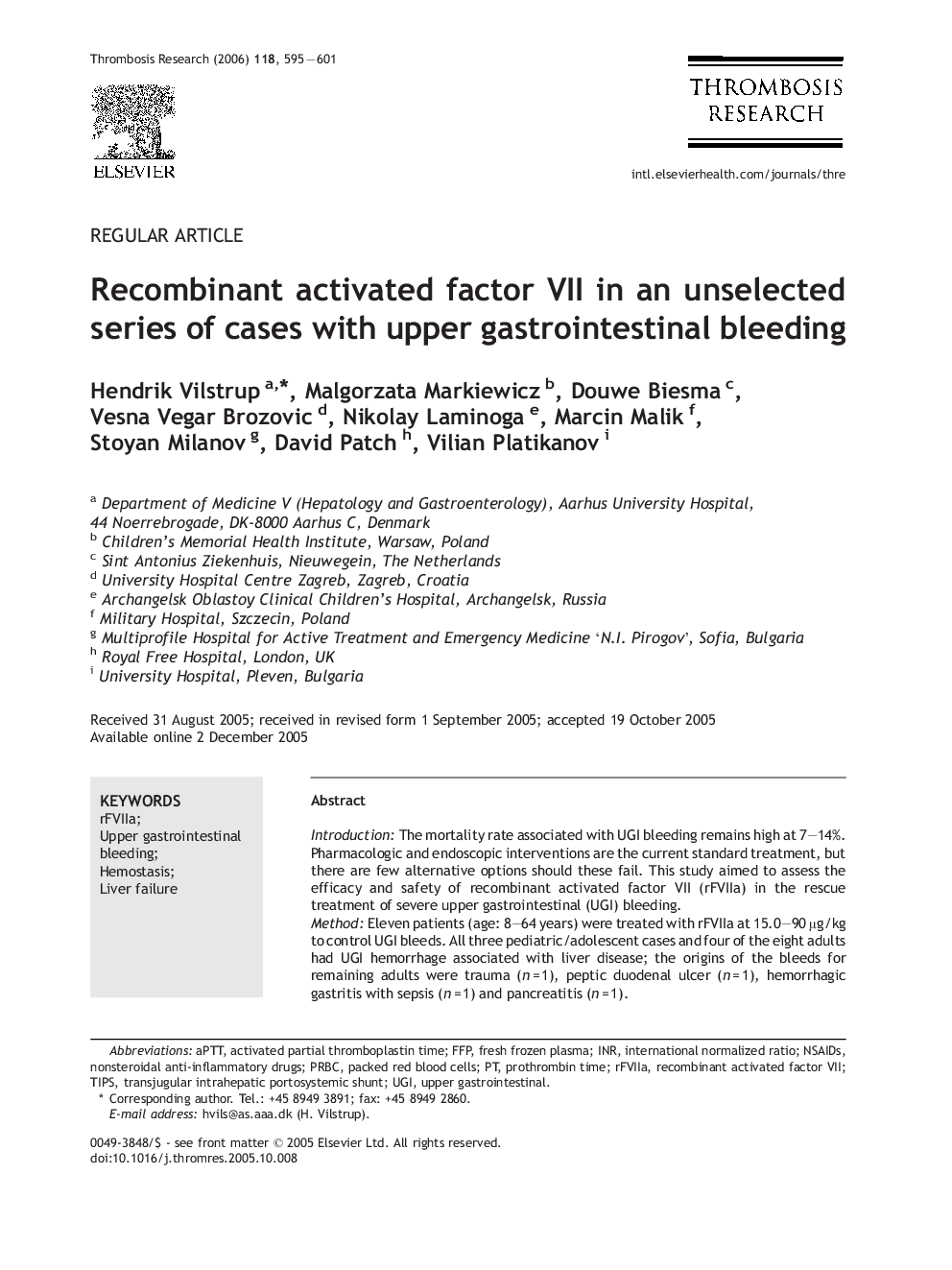| Article ID | Journal | Published Year | Pages | File Type |
|---|---|---|---|---|
| 3030150 | Thrombosis Research | 2006 | 7 Pages |
IntroductionThe mortality rate associated with UGI bleeding remains high at 7–14%. Pharmacologic and endoscopic interventions are the current standard treatment, but there are few alternative options should these fail. This study aimed to assess the efficacy and safety of recombinant activated factor VII (rFVIIa) in the rescue treatment of severe upper gastrointestinal (UGI) bleeding.MethodEleven patients (age: 8–64 years) were treated with rFVIIa at 15.0–90 μg/kg to control UGI bleeds. All three pediatric/adolescent cases and four of the eight adults had UGI hemorrhage associated with liver disease; the origins of the bleeds for remaining adults were trauma (n = 1), peptic duodenal ulcer (n = 1), hemorrhagic gastritis with sepsis (n = 1) and pancreatitis (n = 1).ResultsBleeding stopped in seven patients and was markedly reduced in two patients, while there was no change in two patients. Coagulation parameters displayed a tendency to improve, and transfusion requirements were reduced in most patients. In total, five patients died within 2 weeks of rFVIIa treatment. In each case, fatality was judged unrelated to rFVIIa treatment. No thromboembolic events occurred.ConclusionsThese results suggest that, even if our data are optimistic, the use of rFVIIa in the treatment of severe UGI bleeding warrants further investigation in prospective, randomized trials.
